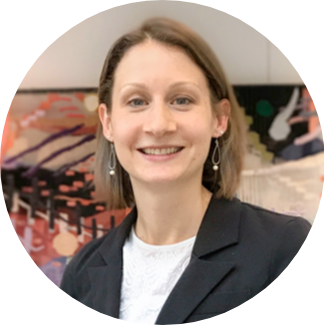Heidi Coia

Heidi Coia
PhD in Cell Biology
“If you have chosen this path, take interest in what you are doing, get involved in organizations, meet people in your field and out, and keep following the things that really excite you about science.”
Why did you decide to pursue a PhD?
As I was completing my MS degree at Virginia Tech, the director of my program offered me some advice about getting a PhD. He said, “for some careers, there are no substitutes”. I saw myself in one of those careers, as a scientist. My grades were good from my MS, so I thought that if I had the opportunity, I should definitely take it!
Tell us about one your favorite academic experiences.
I really enjoyed the variety of students in my program. I am too broke to travel the world, but through them I got a taste of Morocco, Sri Lanki, Saudi Arabia, India, Cyprus and more! They helped give me a better feeling about my department as a whole.
You recently finished your PhD dissertation. Tell us about your research.
My research focused on a lipid peroxidation-derived DNA adduct known as y-OHPdG, which was discovered in my laboratory years ago, and its role in obesity-related hepatocarcinogenesis. Through clinical samples, obese mouse model, and human and mouse cell culture, I found y-OHPdG levels are elevated in early stages of liver disease, indicating that it may have a role in forming cancer-causing mutations later on.
Additionally, Theaphenon E (TE), a formulation of green tea extract, was used as a preventative treatment in my obese mouse model and the results were fascinating. The TE completely prevented obesity-related hepatocellular carcinoma, suggesting TE may be used as a therapeutic treatment in the future.
What are your future plans?
I received the National Research Council post-doctoral fellowship award to study mechanisms of cognitive performance in the Human Performance Wing of the Air Force Research Laboratories at Wright-Patterson Air Force Base.
What advice would you give to prospective or current students looking to get into your line of work?
I would tell them, “It is not for everyone.” If you find something that better suits your personality and lifestyle, take it and don’t worry about anyone’s opinions. Alternatively, if you have chosen this path, take interest in what you are doing, get involved in organizations, meet people in your field and out, and keep following the things that really excite you about science.
How would you describe your experience at Georgetown University in a slogan, one word, or phrase?
I survived, thank God!
